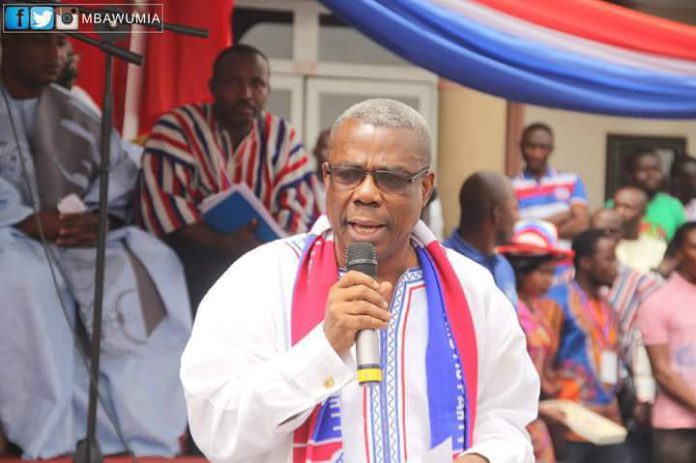A former National Chairman of the New Patriotic Party (NPP), Peter Mac Manu, has called on the police to take decisive action against individuals involved in voter inducement.
In an interview with TV3, he emphasized that it is beyond the party’s authority to enforce laws related to voter inducement.
Mac Manu expressed concern about the increasing influence of money in Ghana’s democracy and stressed the importance of law enforcement bodies taking action to curb this trend.
“The party is not a law court, but I’m saying it is in the laws of this country and I have quoted the PNDC law to you, and so it’s for somebody to trigger like the OSP is doing, otherwise you can say it on radio, and you can say it on TV, it won’t get anywhere, but I think that we must act on it and prevent this from becoming a canker in our democratic dispensation,” he said.
Mac Manu stressed that individuals engaging in such practices might have their reasons, but the court or the Office of the Special Prosecutor (OSP) can assess those reasons.
He emphasised that nobody is exempt from the law and cautioned aspirants to be mindful of their actions.
“So, there is a legal aspect of it, and the party itself in its rules and regulations governing the elections, has put it in place in our code of conduct. So, if people are doing it, I have not seen it but if I see it, I will condemn it or even if I hear it, I will condemn it. Because we should not allow that to creep into our democracy,” Mr Mac Manu advised.
Section 33 of the act states that “A person commits the offense of bribery— if he directly or acting through another person—gives money or obtains an office for a voter to induce the voter to vote or refrain from voting; or corruptly does such an act on account of a voter having voted or refrained from voting; or makes a gift or provides something of value to a voter to induce the voter to vote in a certain way or to obtain the election of a candidate.”
Section 34 of the Law also states that “A person commits the offense of treating— if he corruptly either himself or through another person, before, during or after an election gives or provides or pays wholly or in part the expenses of giving or providing meat, drink, entertainment or provision to or for any person— to corruptly influence that person or another person to vote or refrain from voting.”

